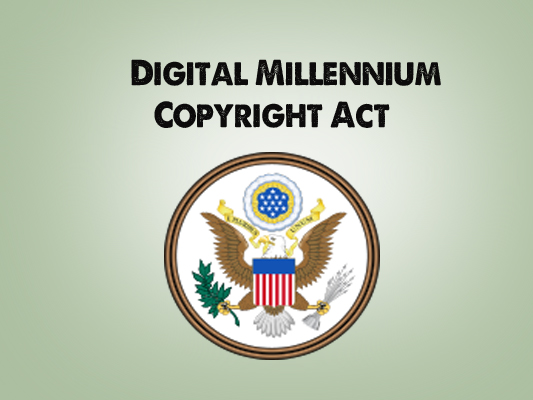Fixing The DMCA Sounds Nice, But Is It Really Necessary?

A new grassroots movement has hit the Internet to “fix” the DMCA otherwise known as the Digital Millenium Copyright Act, but does the DMCA really need fixing? The movement is targeting a specific provision in the DMCA known as the anti-circumvention provision (section 1201 of the DMCA), that enables the Librarian of Congress to make special exemptions every three years, which say what is and isn’t legal to do with your devices. Back in October 2012, the following exemptions were made:
1) Ebook Reading Assistive Technologies: Literary works distributed electronically, to permit blind and other persons with print disabilities to use screen readers and other assistive technologies;
2) Jailbreaking Smartphones for Apps: Computer programs on wireless telephone handsets, to enable interoperability of software applications (“jailbreaking”);
3) Unlocking Old Smartphones to Switch Providers: Computer programs on wireless telephone handsets that were acquired within ninety days of the effective date of the exemption (i.e. January 2013), for the purpose of connecting to alternative networks (“unlocking”);
4) Audiovisual Words Certain Fair Uses: Motion pictures on DVDs or distributed by online services, for purposes of criticism or comment in noncommercial videos, documentary films, nonfiction multimedia ebooks offering film analysis, and for certain educational uses by college and university faculty and students and kindergarten through twelfth grade educators;
5) Audiovisual Works Assistive Technologies: Motion pictures and other audiovisual works on DVDs or distributed by online services, for the purpose of research to create DVD players capable of rendering captions and descriptive audio for persons who are blind, visually impaired, deaf or hard of hearing.
These five exemptions are basically saying that, assistive technologies are okay, jailbreaking and unlocking old smartphones is okay, cracking DVDs for transformative Fair Use is okay, jailbreaking and unlocking tablets is not okay, and moving audiovisual works from DVD to tablet is not okay.
You can see where some people may be upset with some of the exemptions, namely with the fact you can no longer unlock newer smartphones (purchased after January 2013) or jailbreak tablets. In fact, people were so upset by the fact they couldn’t unlock new smartphones that they started a petition to make it legal, which garnered support from the White House.
After receiving a lot of support for the petition, the people behind the petition started the fix the DMCA movement, which is calling for Congress to make the following four exemptions permanently legal:
- Unlocking cell phones, regardless of contract status
- Jailbreaking phones, tablets, game consoles, and other electronics
- Screen reading software for the blind
- Software and hardware modifications and repairs to products that have been legally purchased
We spoke to intellectual property attorney and professor of Copyright, Trademark, and Emerging Technologies at Fordham University, Britton Payne, who believes that we’re moving towards having more freedom with our devices regardless of whether or not Congress makes these requests legal.
Mr. Payne acknowledged that there doesn’t appear to be an immediately apparent reason as to why you can jailbreak a smartphone but not a tablet, however, he suspects it may be more of a business decision than a legal one. The decision, Mr. Payne, speculates may have to do with letting businesses make back their money on newer products/technology and allowing them to maximize their leverage in the marketplace.
The fact of the matter is it’s unlikely that we’ll ever see the exemption that allows screen reading software for the blind to exist be revoked, and we will most likely continue to receive more rights as time goes on — not less, especially as the technology progresses. That being said, no one is going to come after you in your own home for jailbreaking your tablet. The law is essentially saying that some company can’t create and sell some device that jailbreaks a tablet, which really, at the end of the day is just protecting device manufacturers — making what Mr. Payne said sound even more plausible.
Would it be nice to have these four exemptions made legal? Sure, but it appears that we’re on track to have more freedom with our devices anyway. It will be interesting to see in three years from now, what the new exemptions are, I have a feeling tablets will be included in that jailbreak exemption — the iWatch though, probably not.